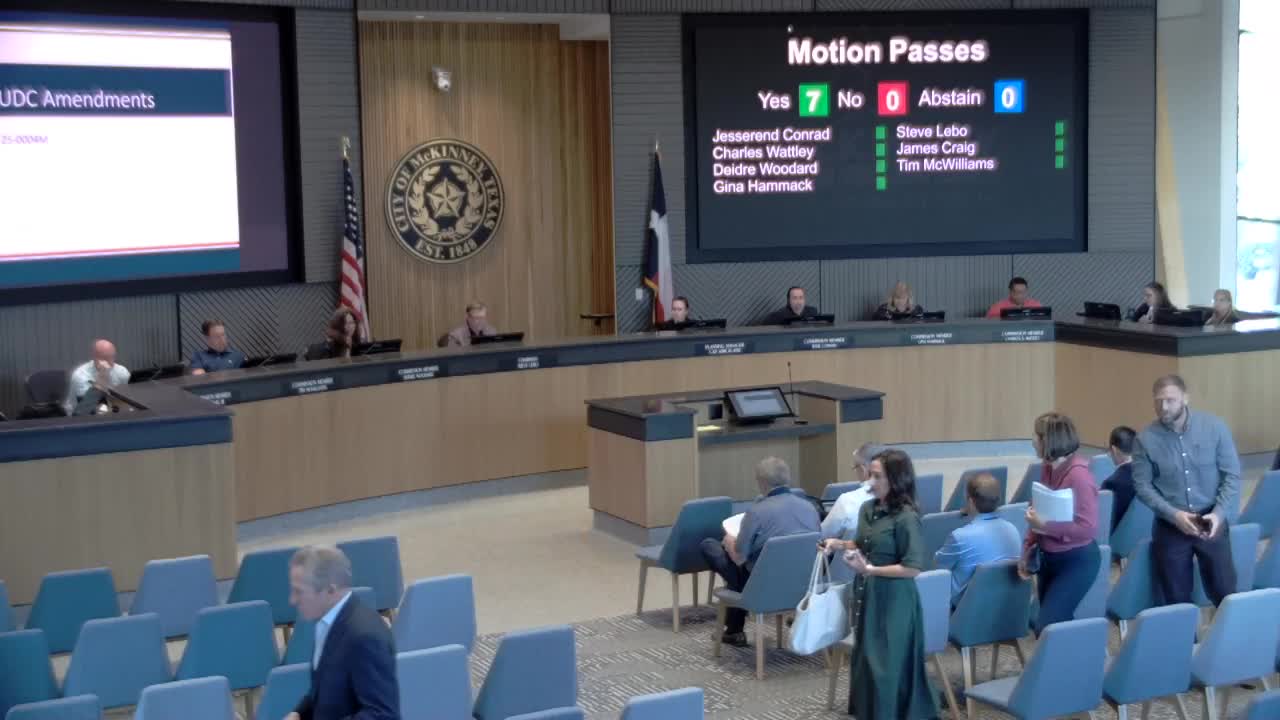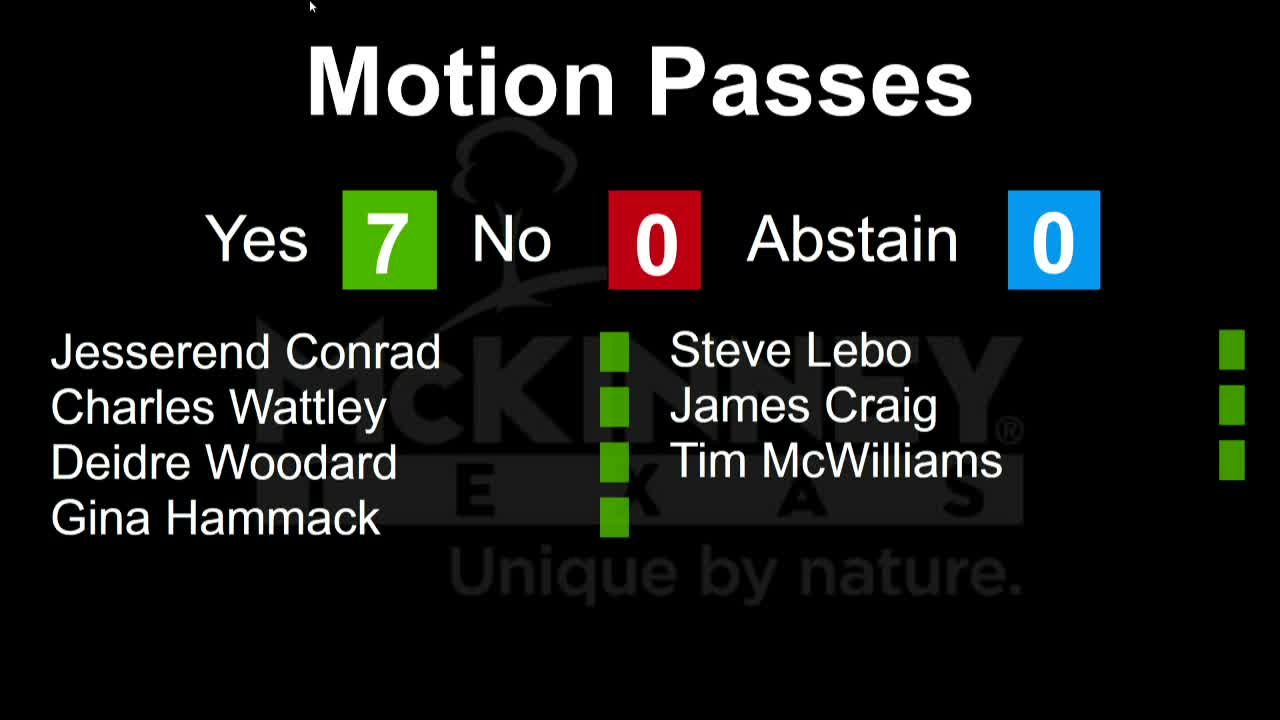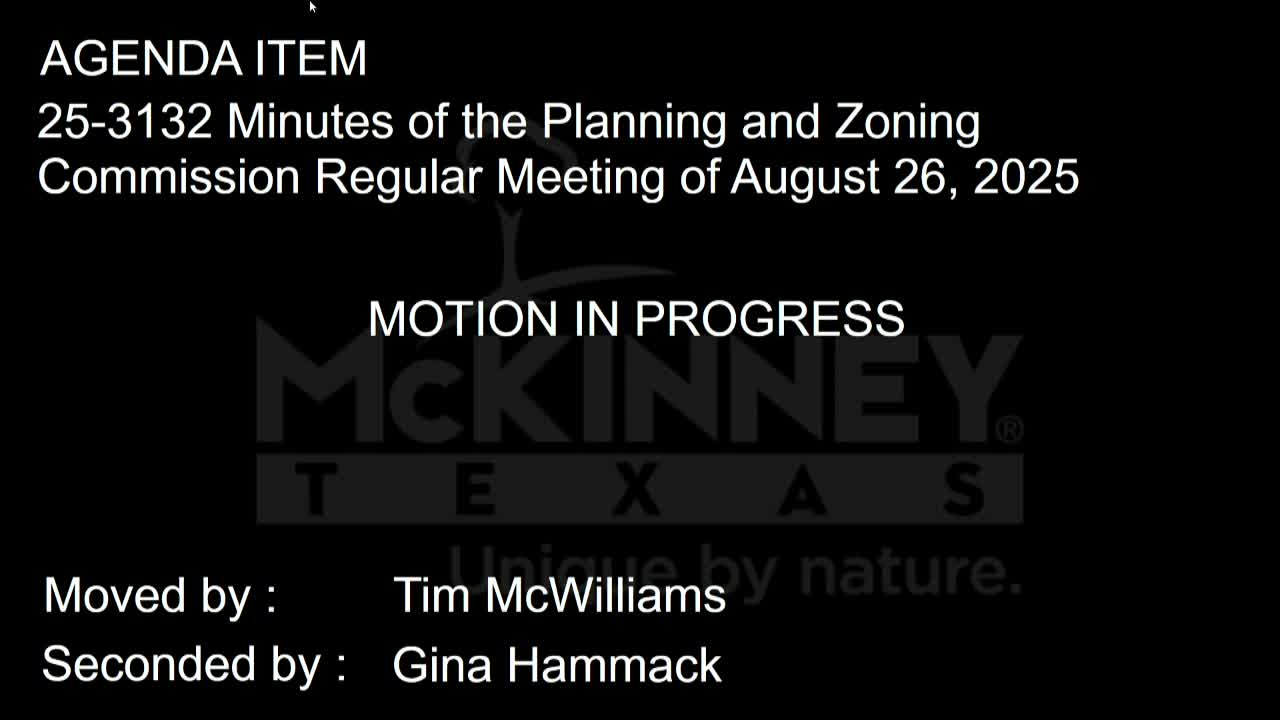Article not found
This article is no longer available. But don't worry—we've gathered other articles that discuss the same topic.

McKinney commission approves UDC amendments to implement recent state housing and zoning bills; forwards to council

Commission approves reduced loading setback for Custer Frontier Marketplace with screening requirements

